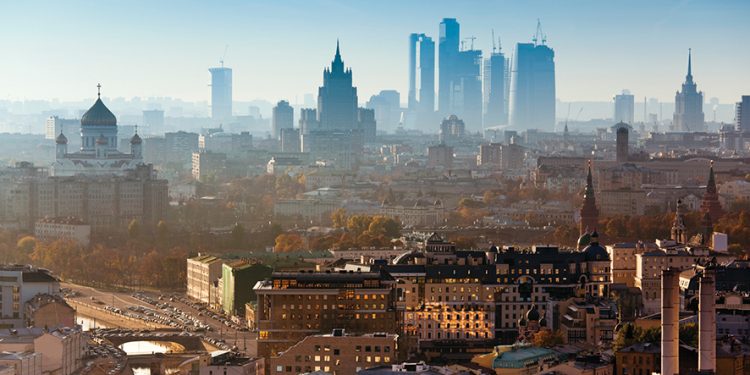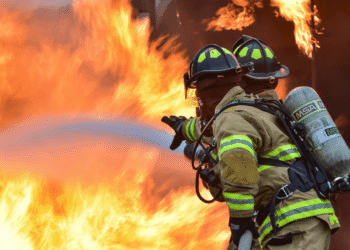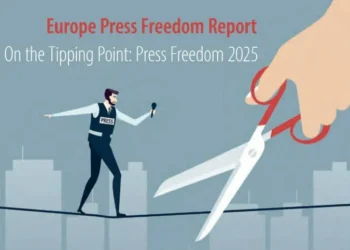Home now, in my familiar little Saqartvelo, I can reflect on a somewhat surreal summer spent in and around Moscow, Russia. Like any other big city, Moscow looks different at night compared to the daytime, and while this itself is a dichotomy of a kind, the actual national-level dichotomy in Russia runs much deeper and is certainly socio-politically more haunting.
New York looks impressive both when the stars are twinkling in the sky and when the sun is at its zenith, but the same description would not fit into an attempt to portray Moscow. Strolling along the spacious downtown streets of Russia’s capital, I wanted to stay there longer, because it looked truly gorgeous. Many capitals of the world have impressed me, each in their special way, and Moscow definitely has its own urban immensity and personality, but more so at night. I am decidedly saying ‘at night,’ because I had a bird’s eye daytime view of the city from a 92nd floor observation platform, and, frankly, I was a little frustrated because my eyes hit a massive, faceless, architecturally plain and unsystematic, gloomy and infrastructurally confusing urban settlement, one which I had no desire to continue watching from above longer than I did. Yet, at night, the picture was totally turned when I found myself slap-bang in the middle of the richly and colorfully illuminated city of Moskva; every corner of it enticing me magnetically, luring me into the depths of evening life, where lavishly organized entertainment and palate-savvy gratification are both well-provided for, if not painfully expensive (though products in regular grocery stores are rather cheap – they tell me the government has frozen the prices on everyday staples).
Moscow life has changed an unrecognizable amount. One of the most noticeable Russian dichotomies which attracts attention are the signs in Moscow, almost half of which are in English. Again, to compare Moskva with New York, sporadic Russian-language signs would attract the eye, but only in Brooklyn, nowhere else. Cyrillic store signs in America? That would be crazy to imagine. Does this mean anything? Most likely, yes- it means Russians have not forfeited their post-Perestroika penchant for westernization. Suffice it to mention that I couldn’t see anyone in the street whose apparel was not Western.
Speaking about the Russian dichotomized lifestyle, I could not really help noticing that there are two drastically varying Russias out there: life-enjoying and war-suffering. Let’s elucidate: part of the country is in the battlefield with all those warfare attributes in place: the military machine is rolling at full speed, boots on the ground, soldiers and volunteers getting killed every step of the way, and throngs of refugees seeking alternative homes in which to settle, even temporarily. The other part of the nation is doing business as usual, money is being made, schools routinely pressing on with their regular schedules and academic programs, eateries full of people, stores packed with consumers, the pleasure industry at full swing and the entertainment kingdom doing its due without anything getting in its way. While the devastating rockets are swishing by their ears almost every instant of the day, alongside the perfidious drones with lethal weapons hovering over their heads, the happy Russian rank-and-file is watching the international festival of military music, hosted by their famous Red Square, or enjoying the international cinematic week with full houses, taken by applause and cheers. The “special military operation” could not even hold back the prestigious SMP Russian car racing, or put a stop to the super match between the popular Russian football teams of Zenith and Spartak.
And finally, here goes the strangest among the dichotic findings of the day: the Russians are attacking Ukrainian forces on Ukrainian soil, and at exactly the same time, they are taking bombs and bullets from Ukraine’s martial powers on their own territory, the two frontlines being equally exhaustive and destructive. It is surreal; the situation carrying a weird theatrical streak that tends to wax more phantasmagoric than the plots of one of those science fiction opuses. When back to senses again, one wonders if this kind of clear and present duality is possible at all. And the creepiest part of the whole story is that years will pass and, as if nothing much happened, today’s vested enemies will make it up and start active fruitful cooperation again, to the benefit of all those who are today at each other’s throats. And they will formally pay routine homage to the dead and missing in action, sarcastically justifying this terrible human misfortune with the household French cliché – c’est la vie.
Op-Ed by Nugzar B. Ruhadze














